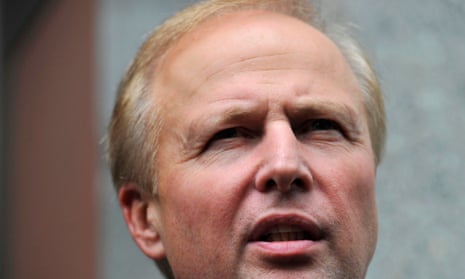Bob Dudley, the chief executive of oil group BP, enjoyed a 25% pay rise to $12.7m (£8.3m) last year after implementing a raft of job cuts, imposing a company salary freeze and missing all safety targets for the year.
In January, Dudley sent a memo to staff outlining his decision to hold pay for the group’s 84,000 staff at last year’s levels because of the harsh trading environment, just weeks after announcing 300 job cuts at BP’s operations in Aberdeen.
The group’s annual report, released on Tuesday, revealed the leap in Dudley’s total remuneration, which included a salary of $1.8m and a cash bonus of $1m, which was awarded against criteria designed to measure his effectiveness in hitting a series of financial and safety targets.
He also received $9.8m in share awards, with his increase in pay from 2013 largely attributable to a $3.4m bonus deferred from 2011, when the company boasted a better safety record.
Summing up the year to shareholders, Dudley wrote: “2014 was a turbulent year – for BP and the industry. Oil prices fell dramatically and returned to their familiar pattern of volatility, after several exceptional years in which they remained above $100 per barrel ... We are now resetting the business to deliver value in this new context, scaling back capital spending and reducing costs, while always maintaining our primary focus on safety.”
Safety records account for 30% of BP executive directors’ annual bonuses, with a target score of 10 and a maximum of 20 being set for each measure of “loss of primary containment” (less serious spills), “tier-one process safety events” (serious spills) and frequency of recordable injury.
In those categories in 2014, BP directors respectively scored 7.96, 0 and 6.07 as the group reported a 40% increase in serious spills and a near 10% increase in the number of less serious spills.
There were also “three workforce fatalities in 2014, in accidents at a German refinery, a UK North Sea platform and an Indonesian petrochemicals plant”.
The report added: “Our 2014 [safety] data reflects increases in part due to the introduction of enhanced automated monitoring for many remote sites ... Our performance in these areas over time suggests that our focus on safety is having a positive impact.
“However, we need to continue to remain vigilant and focused on delivering safe, reliable and compliant operations”.
As well as the cash bonus awarded for 2014, Dudley will also receive a further $2m bonus in shares, which he has deferred.
Details of his pay were released alongside that of Iain Conn, BP’s former executive director who left last year to become the new chief executive of British Gas owner Centrica.
Conn earned £5.8m from BP last year, including a £1.3m cash bonus, a third of which he would usually have been forced to defer, but he did not receive a “golden hello” from Centrica.
